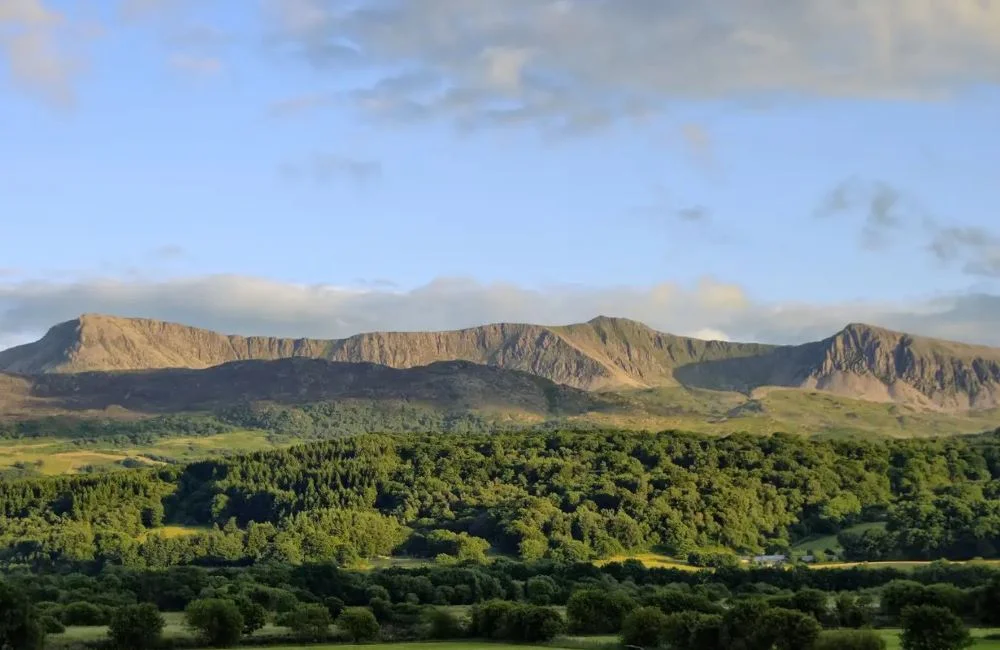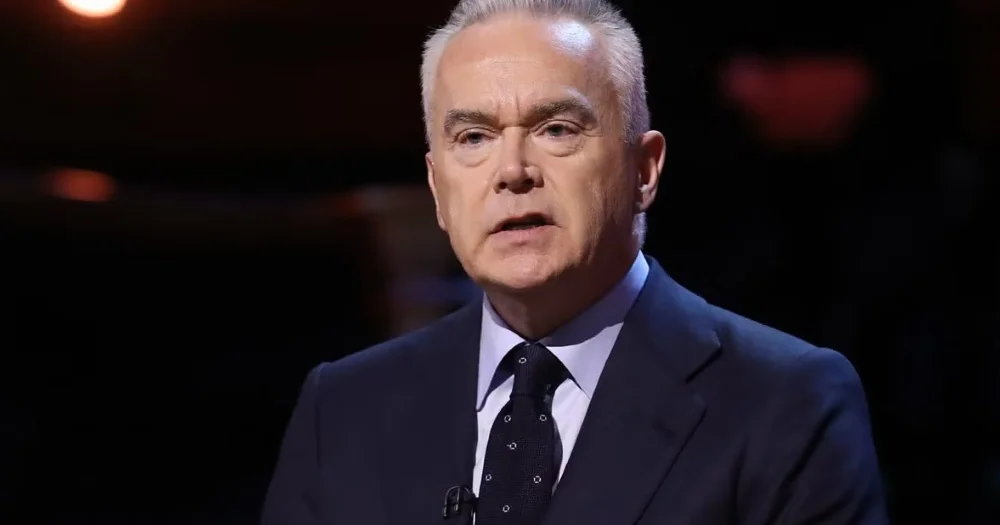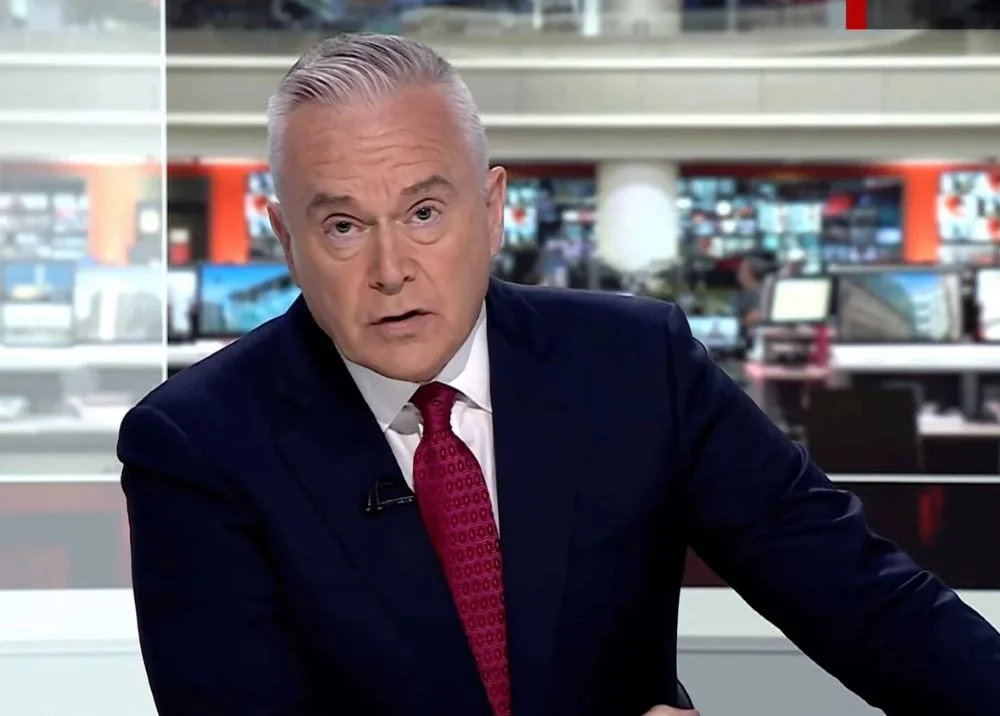Huw Edwards: The Heart and Voice of British News
The news’s dependable and well-known voice is Huw Edwards, who seems as steady as an old friend. Whether reporting on breaking news or significant historical events, he is one of the BBC’s most admired presenters and infuses each narrative with composure and clarity.
But there’s more to Huw’s story than just journalism. His enthusiasm for his Welsh background, which he openly embodies in both his job and personal life, is the foundation of his commitment to knowledge sharing. His reporting gains a special warmth from this relationship, which viewers greatly value.
Huw Edwards: The Voice of British News and Culture
1. The Early Years: A Journey Shaped by Welsh Heritage

Huw Edwards was born in the South Wales town of Llangennech, and his heritage is strongly ingrained in the customs and culture of his own country. He was brought up in a Welsh-speaking household and had a deep bond with his roots at an early age. He has carried this early exposure to Welsh culture with him throughout his life, not only as a personal interest but also as a significant impact on his journalism.
As a child, Edwards was surrounded by Welsh storytelling customs, which fueled his curiosity about information and communication. Huw’s ideals were surely greatly influenced by his father, Hywel Teifi Edwards, a Welsh-language campaigner and historian whose commitment to Welsh identity was evident. He was inspired to pursue a career in journalism after witnessing firsthand the value of preserving a culture through language.
Being raised in a bilingual and culturally diverse home gave Edwards the confidence and linguistic proficiency that would be crucial to his professional success. Speaking Welsh fluently not only demonstrates his heritage but also helps him interact with people from different language backgrounds. His heritage plays a significant role in his public and professional identity; it is more than just a background fact.
2. Climbing the Ladder: A Career in Broadcasting
In the early 1980s, Edwards began his broadcasting career as a trainee for the BBC. His early jobs were diverse, ranging from local news to global headlines. In order to stand out in crowded field, he created a distinct, commanding style throughout the years that became his signature. His meticulous and accurate approach to journalism soon established him as a reliable figure in British media.
He made his breakthrough by covering the significant political events of the day as a parliamentary correspondent. Both the public and the industry praised Edwards for his ability to communicate complicated ideas in an approachable manner and for his cool, collected manner. His reputation as a trustworthy voice in British journalism during the 1990s laid the groundwork for a career that would only become more well known.
When Edwards took over as the primary anchor for the BBC’s main news show in 2003, it was a turning point in his career. From there, he would cover everything from royal weddings to national elections, some of the most important stories of the twenty-first century. As the spokesperson for BBC News, he would solidify his reputation as one of the UK’s most esteemed journalists.
3. Reporting on Historical Moments: The Voice of Britain
Throughout some of the most important periods in contemporary British history, Huw Edwards has been a steadfast presence. He served as the spokesperson for the BBC’s coverage of Brexit, the 2012 London Olympics, and Queen Elizabeth II’s passing. As has come to define his work, Edwards infuses these broadcasts with a feeling of composed authority that enables viewers to perceive these events with clarity and respect.
He is the go-to anchor for significant national events because of his ability to convey gravity without detracting from the story. Edwards’ voice is frequently the one leading viewers through the events that are taking place, whether they are moments of celebration or disaster. His presence provides the British public with a sense of continuity, particularly during emotionally charged situations, and is both reassuring and perceptive.
Edwards frequently incorporates historical and cultural background into his broadcasts in addition to reporting, which helps viewers comprehend not only the “what” but also the “why” of events. He is useful during pivotal points in British history because of his expertise and dedication to educating the public, which enable him to approach news with a nuanced, balanced perspective.
4. The Influence of Welsh Identity in His Work

Huw Edwards’ Welsh ancestry is an essential component of his professional identity and not just a personal characteristic. He has frequently discussed how crucial it is to portray Welsh culture in the UK’s largely English-language media environment. Because of his dedication, he has promoted Welsh language and culture in a number of venues, highlighting the value of regional participation in British media.
Edwards has been able to act as a link between the Welsh and English-speaking communities because of his fluency in Welsh and his ties to Welsh culture. He frequently works on projects that promote Welsh music, art, and history. He also produces movies and writes essays that honor his roots. For Edwards, preserving these cultural ties is a deeply personal as well as a professional decision.
Edwards has gained prominence in Welsh media as a result of his work, frequently going back to his roots to report on events and stories from his native country. His commitment to Wales goes beyond mere patriotism; it is a fundamental aspect of who he is and influences the way he does his work, giving his journalism a depth and sincerity that appeals to readers all around the United Kingdom.
5. Beyond the News Desk: Huw Edwards as a Cultural Advocate
Huw Edwards has utilized his position to advocate for the arts and cultural heritage outside of the newsroom. His passions go far beyond journalism; he is active in a number of arts-supporting projects, especially those that highlight Welsh history and culture. Edwards uses his position to raise awareness of causes that are important to him, whether he is hosting films, lecturing, or taking part in conversations about cultural concerns.
His participation in initiatives that honour Welsh history and identity serves as an example of his function as a cultural champion. Edwards has contributed to the dissemination of Wales’ rich cultural landscape by working on documentaries about Welsh sites and significant personalities. His dedication to spreading these tales demonstrates his faith in the inspirational and educational potential of the media.
Edwards promotes the value of public service broadcasting outside of Wales as well. He has been an outspoken supporter of the BBC’s mission, contending that a robust democracy depends on independent media. His attempts to uphold the caliber and integrity of British journalism, which he views as being closely tied to his professional and cultural beliefs, are another example of his impact in the media sector.






